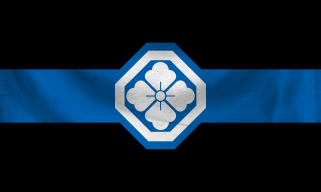National information
Official Name: Republic of Yintang
Shortened Name:Yintang
Requested Location: https://imgur.com/a/UoWfozl
Requested Population: 16 mil
Culture: Yintaosian is the primary culture in Yintang. Yintaosian beliefs are fused with their 'religious' beliefs, which is more of a philosophy like confucianism. In their culture they encourage hard work, where your spirit grows with your deeds and accomplishments.
- Ethnicity: Yintaosian almost completely dominates the ethnic entity of Yintang, however plenty of foreigners arrived in the region looking for opportunitys.
- Religion: Minghoanism, years ago founded by the philosopher Ming-Hoa, was a spiritual thought in which your accomplishments strengthened your spirit in the afterlife, and ancestors who did great things would be venerated and remembered by the family as well as living lavishly in death.
- Languages: Yintaosian is spoken everywhere-- It is most similar to traditional chinese.
Government Type: Thalassocracy
Head of State: Xingzheng Guan Shi Xun
Head of Government: Shouxiang Xiao Kailing
Requested GDP Per Capita: $56,435 in US Dollars
National Overview: Yintang was always a republic-- No one remembers a time from before the republic, all that has ever been known was tradition and is still tradition. Thousands of years ago, the Republic of Yintang had existed in isolation from the rest of the world, its people had many great philosophers and lived prosperously. They developed oceangoing naval vessels and explored the seas, claiming many colonies and resources, which they trade with the rest of the world.
Social views:Drugs are seen with bitterness, however not legal, many refrain from use of drugs because they encourage bad behaviors.
- General population's view on LGBT+ rights/LGBT+ people: The majority of Yintang does not care about homosexuality-- It is up to the person to decide what makes them happy, as long as they are productive.
- General population's view on religions other than the primary one: Yintaosians view other religions openly and many practice other religions syncretically with Minghoanism.
- General population's view on atheism: Atheism is incredibly small as Yintaosian tradition is in essence spiritual but not a strict religion, and only encourages morals and good thought.
- General population's view on abortion: Abortion is seen by many Yintaosians as unethical.
- View on other races/ethnic groups other than the primary one(s): Yintaosians have no grudge against any foreigners, and many mix with them.
- Any big prejudices in your nation: Laziness.
- View on immigration into country: Immigration is encouraged.
- Women's Rights: Women have the exact same potential as men.
- Views on tobacco/alcohol/pot/other drugs:
Other:
- Factbook: I'll do iiwiki if i get accepted.
- RP Preferences: Military/Diplo
- RP Samples: Don't really have any that I am able to share but I have had years of roleplay experience primarily in World of Warcraft, but also in discord roleplay servers. I'll take the prompt though.
- RP Intentions: Everything
- Primary/Other NS Nations: I had other ones but they're inactive and i havn't touched them in months. I don't plan to.
- [b]Any troubles with moderation? (If so, a link, please.): Nope.
- Anything else?:











